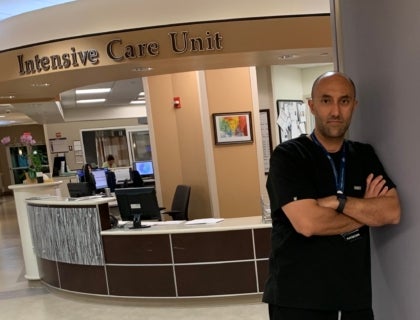March 14, 2018
Preparing for Residency: 6 Tips for Success
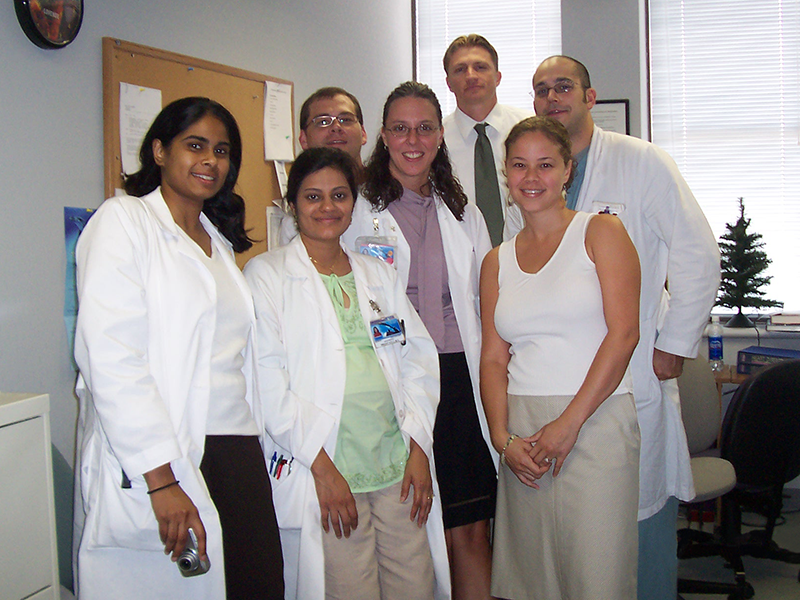
It’s Match Week – the week medical students love and fear the most. By Friday, these students will learn where they will spend their next three or four years completing their residency. Let me be the first to say congratulations! You are almost done with a major milestone and on your way to starting your career as a physician. The reality is that medical school is coming to a close, and residency is about to begin. Excitement around Match Week and Match Day will be palpable. Your palms will by sweaty as you are handed the envelope, holding the course of your next chapter. Thoughts going through your mind will likely include the following: Where am I moving? Did I get my first choice? Is my best friend coming along? Believe me, that moment when you get that envelope will be etched in your mind’s eye for the remainder of your life. That one moment determines the path of your future. It dictates the friends you will make, the relationships you will form, and the community you will serve. Most important of all are the patients you will care for and learn from over the next three to four years. 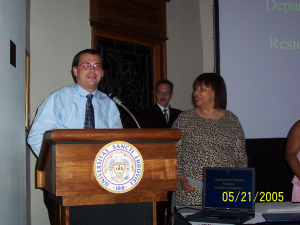 Match Day for me was a whopping 17 years ago! So long ago, yet I still remember standing on the Memphis Redbirds baseball field and staring at that envelope. No matter what was in the envelope, my fate was sealed. (Thank goodness) I matched! This young medical student from Memphis, Tennessee was St. Louis bound! That week was the icing on the cake! My advice to you is to keep busy during Match Week and savor the moment of Match Day. You’ll learn that physicians work hard, yet rarely allow themselves the opportunity to enjoy significant milestones. Make it special. Celebrate with your friends. Trust me, the next three years in residency training are going to be the most exciting journey you take on the way to completing your training and finally get to start your “real” career. As I reflect on my career as a physician over the past 17 years, there’s been a lot of learning – even after medical school and residency. The learning I did following training was around coping – mostly around stress and resilience (and yes, dealing with the additional 30 pounds that were evidence of this struggle)! I wish someone had given me this advice as I embarked on the next chapter of my life. So, here are my tips for success as you begin this journey:
Match Day for me was a whopping 17 years ago! So long ago, yet I still remember standing on the Memphis Redbirds baseball field and staring at that envelope. No matter what was in the envelope, my fate was sealed. (Thank goodness) I matched! This young medical student from Memphis, Tennessee was St. Louis bound! That week was the icing on the cake! My advice to you is to keep busy during Match Week and savor the moment of Match Day. You’ll learn that physicians work hard, yet rarely allow themselves the opportunity to enjoy significant milestones. Make it special. Celebrate with your friends. Trust me, the next three years in residency training are going to be the most exciting journey you take on the way to completing your training and finally get to start your “real” career. As I reflect on my career as a physician over the past 17 years, there’s been a lot of learning – even after medical school and residency. The learning I did following training was around coping – mostly around stress and resilience (and yes, dealing with the additional 30 pounds that were evidence of this struggle)! I wish someone had given me this advice as I embarked on the next chapter of my life. So, here are my tips for success as you begin this journey:
1. Savor the moments of success.
There will be many “firsts” as you start your intern year or PGY1. Your first successful intubation. Your first successful resuscitation. The first outpatient clinic patient with whom you bonded. Allow yourself the time to enjoy these moments. At the very least, be intentional about taking a few minutes to reflect on them. Your intern year can be overwhelming. Please do yourself a favor – enjoy all your successes. It will recharge your spirit and help you maintain resilience.
2. Make time for YOU!
Between working crazy hours, studying new treatments, or preparing for various presentations, you can easily get caught up in a cycle of fatigue that can lead to burnout. While you might not have control over your call schedule, you can incorporate some control over your daily and weekly schedule to your advantage.Set aside time each night (or day) to focus on non-work related activities. Read a chapter in your favorite new book, write an update in your journal, or sit in silence and simply enjoy the peace and quiet. Whatever recharges you, be sure to schedule time to partake in those activities. If not, you will have gone a month or two without enjoying those simple pleasures, and it can take a toll on your happiness.
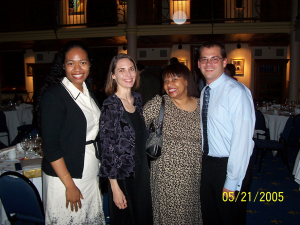 3. Eat your vegetables.
3. Eat your vegetables.
No, seriously. I know I sound like your parent, but make sure you take care of your health and eating habits. It’s convenient to grab a burger in the cafeteria for a quick lunch when you have to round on 15 patients and then later get to clinic. It’s equally easy to skip meals altogether. Not eating is not an option, and not making healthy choices will catch up with you (trust me).
4. Make sure you move.
You would be surprised how easy it is to get stuck on a unit for hours documenting notes, reviewing charts, etc. My advice – stay mobile and keep active.Clearly, we all know the advantages of exercise and mobility. But, honestly, just like eating your vegetables, exercise can be hard to fit into a busy intern’s schedule. Carve out time to do simple things to get activity – take the stairs (also known as the physician’s workout facility), walk around the units, and make time to hit the gym.
5. Find a mentor.
Residency can be stressful. Find someone who can help you manage through the stress. This is an important key to staying sane and focused during residency.After the first few days and weeks, you will probably connect to a particular attending, chief resident, senior resident, or fellow. Use them not only for advice on how to treat patients, but also on how to optimize your time and energy. Most training programs have formal resources and support services for residents who are experiencing burnout, whether mental or physical. Reaching out to access support is not a sign of weakness, it’s a sign of healthy emotional intelligence. Don’t be afraid to reach out if you need help. Trust me, no one will think less of you, and you are definitely not alone.
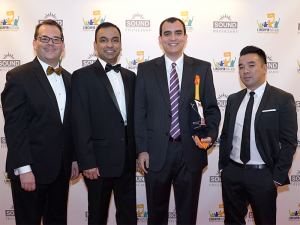 6. Prepare for the future.
6. Prepare for the future.
Thankfully, residency training doesn’t last forever. While it is a wonderful time of your life, all good things must come to an end. It is never too early to start planning your post-training career.Depending on your future career goals, I suggest you get active in organizations that can help support your career planning. If you are interested in hospital medicine, consider joining the Society of Hospital Medicine. If you are considering primary care, then join the American College of Physicians or the American Association of Family Physicians. Many of these organizations have special programs for interns and residents. Take advantage of their resources and networking opportunities to help you in your post-residency career planning. You play an important role in the care of patients, even while during training! Congratulations on this next milestone and thank you for taking care of yourself and your patients in the coming years.


